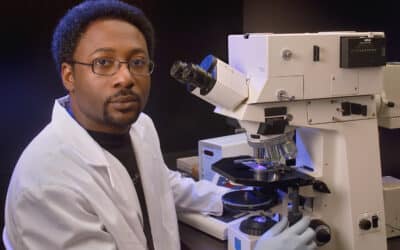What does microbiology have to do with food safety? More than you think. It is one of the main aspects of overall testing in South Africa, in fact. Failing to do the necessary microbiology testing can result in a slew of complications.
But what should you test for? How often should you have your products tested? And, what does the law say about microbiology testing?
As a manufacturer, it is your responsibility to ensure that your food products comply with standards and regulations. That’s why you need to clarify your testing strategy. To do that, you need an understanding of microbiology testing. So, let’s get into it.
What is microbiology testing?
Microbiology testing is the process of analysing your products to detect and quantify pathogenic microorganisms. The purpose of it is to ensure that the food is safe for consumption.
We have previously discussed the ins and outs of microbiology testing labs. But to quickly recap – these labs can test your products for a variety of microorganisms.
How does this fit in to overall food safety?
Foodstuffs can carry hazards that are not visible to the human eye. These could be microbiological or chemical risks.
Common hazards, in terms of microbiology, include bacteria like salmonella. Food products can also contain parasites and pathogens. If ingested by people, these can cause illnesses and disease and in the end could have a detrimental effect on public health.
Microbiology testing helps you to prevent harm being caused through your products.
What does the law say?
The Department of Health has made regulations for microbiological standards, in terms of the Foodstuffs, Cosmetics and Disinfectants Act, 1972 (Act no. 54 of 1972). They detail various organisms that are not allowed to be present in food products. Also, they specify which tests you should use to find organisms in food.
For instance, they explain that:
- All food products are prone to spoilage by microorganisms. Certain microorganisms like Echerichia coli, listeria monocytogenes as well as salmonella should be absent in ready to eat food products.
- Partly cooked or uncooked sea-water or freshwater foods like mussels should have a limited amount of Vibrio and Shigella. In 25 grams of these products, the microorganisms should be absent.
These are just two examples to show you that you are required by the law to ensure that your products are safe. The laws are in place to keep people safe. So, if you don’t follow them, you are endangering peoples lives.
What should you test for?
There are two sectors of microorganisms that you should be aware of.
The first group are microorganisms that result in spoilage. These will not cause people to get sick, but will cause the food to go off. In general, for this category you would test for bacteria, moulds and yeast.
Second, you should test for pathogens that cause food poisoning. For example, E.coli or Salmonella.
It is important to remember that there are limits for the presence of all microorganisms in food products.
How often should you do microbiology testing?
The frequency of microbiology testing depends on the type of product you are producing. Moist foods need to be tested more often than dry foods. This is because dry environments are not hospitable to bacteria.
However, despite the technicalities of how often you should test, it is still a good idea to test frequently.
In 2017 -2018, a pathogen called Listeria monocytogenes went undetected in certain meat products. This led to a listeriosis outbreak in South Africa, which caused the death of more than 180 people.
If pathogens go undetected in your products, you face severe reputational risks, unnecessary costs (the sum of recalls, legal fees, damages and more), and you are putting people in harms way. It’s better to test frequently to avoid a situation like this.
In Conclusion
Anything that results in food poisoning or spoiled foods, is a risk to food safety. That’s why microbiology testing is so important.
Undetected harmful substances can cause your business and your customers harm. To avoid this, you should get in contact with accredited providers of food and occupational health and safety testing, to analyse your products.



